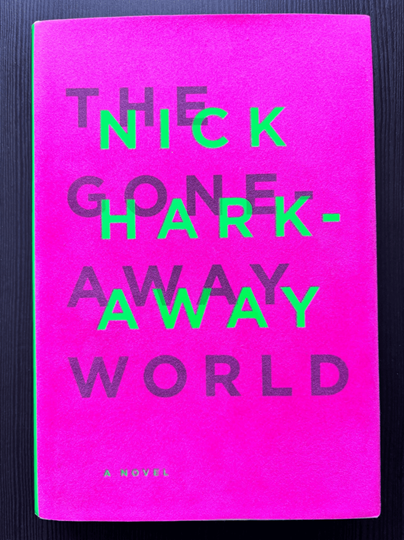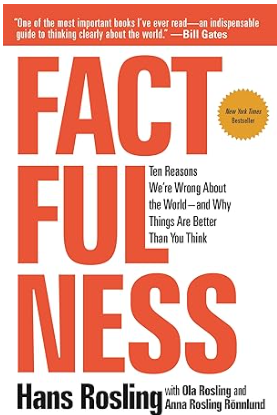Favorite Books
Sabriel
Garth Nix
I was maybe 10 years old when I first picked up Sabriel, and it quickly became one of my favorite books! My paperback copy has been taped and retaped many times over the years.
This young adult fantasy novel by Australian author Garth Nix follows Sabriel, a young woman raised in a boarding school in the land of Ancelstierre, just south of a magical and dangerous land called the Old Kingdom.
When her father—the Abhorsen, a necromancer who lays the dead to rest—goes missing beyond the Wall separating the two lands, Sabriel must cross into the Old Kingdom to find him. She inherits his title, tools, and responsibilities, including a set of magical bells used to control the dead.
The novel explores themes of duty, identity, and the struggle between life and death, with a richly built magical system and a strong, determined heroine at its center.
What adds to my love of this story is the continued exploration of Ancelstierre and the Old Kingdom with other novels and novellas:
Clariel (2014): A standalone prequel set about 600 years before Sabriel. It tells the tragic origin story of a girl who becomes one of the villains later in the series.
To Hold the Bridge (2010): A standalone novella taking place in the Old Kingdom, about 100 years before Sabriel, introducing a different character.
Terciel and Elinor (2021): A novel set shortly before Sabriel, telling the story of Sabriel’s parents: Terciel, the Abhorsen before her, and Elinor, a girl from Ancelstierre who becomes part of his life.
Lirael (2001): Set about 14 years after Sabriel, this follows Lirael, a young woman who believes she doesn’t belong, as she discovers her true role.
Abhorsen (2003): Direct sequel to Lirael, concluding the events started there. Follows a large‑scale battle against Death and powerful necromancy.
The Creature in the Case (2005): A novella set after Abhorsen but before Goldenhand. Follows Nicholas Sayre in a post‑war setting.
Goldenhand (2016): Follows Abhorsen and The Creature in the Case, continuing Lirael and Nicholas Sayre’s stories.
Old Kingdom Series – Interactive Timeline
Tip: Toggle order above. Click a card’s “More details” to expand. Scroll or use the arrows.
The Gone‑Away World
Nick Harkaway
So I’m walking through my hometown bookstore, simply browsing, when I see this book with a pink, fuzzy cover. Reader, I immediately purchased it. Yes—I judged a book by its cover! As you can already tell from its inclusion in this list, my judgment was sound; this became one of my favorite books. Very, very basically, it’s about saving the world, but it’s also about the apocalypse, ninjas, creating something you can’t control because “war” and “the enemy,” and the people who have to clean up after your mess, friendship and its limits, mimes, and discovering yourself.
This was Harkaway’s debut novel (I also found out recently he’s the son of John le Carré), and I immediately fell in love with his writing style and the story. I’m a big fan of post‑apocalyptic fiction, and this hit the spot. I also loved his second novel, Angelmaker (which I’d also recommend). A bit spy thriller, a bit philosophy, a bit comedy, a bit epic adventure, a bit sci‑fi…all fun!
It’s one of the books I love to read over and over again, and I display it proudly on my bookshelf.
What's Your Gone Away World Vibe?
Click to generate a quirky combo from Nick Harkaway's wild debut.
Factfulness
Hans Rosling
I first saw the author, Hans Rosling (1948–2017), Swedish professor of international health at Karolinska Institute, in some entertaining and informative TED Talks. His main point was people in Western countries have a view of the rest of the world (income level, children per woman, health outcomes, education, standard of living) that is accurate…accurate for how the world was in the 1960s. That view is completely wrong today and not supported by the data. The predominant and incorrect idea is that the world is only made up of the West and the Rest, is just the starting point of his message.
After nursing my wounded ego (prepare yourself to get most of the questions wrong; you can get an online taste at https://www.gapminder.org/) I could see how this worldview came to be widely accepted and difficult to change. You will probably feel some cognitive dissonance while reading this book, as I did; however, I ended with a hopeful view of the world and, more importantly, the ability to identify stories that seem too dramatic. I can then research the stories’ premise to see if it’s only clickbait. Filtering out the dross saves my limited energy for focusing on real issues. This is the same process I use when viewing how aviation incidents are portrayed in the media. Because I work with aviation data, I can gauge if the story is seeking clicks through fear, or actually presenting useful information.
Perhaps it is this desire to get to the root of a story or an issue, a product of my training in historical research, that helped this book resonate deeply with me.
How Factful Are You?
World Book Encyclopedia
My parents bought the 1968 edition of the World Book Encyclopedia for their growing family. I had a voracious appetite for information, so this was a gold mine for me. Over several years, I methodically read through the entire encyclopedia and eagerly awaited the Year Book every spring. This was the beginning of a love affair with the written word, even to the point of focusing on the fonts and their serifs.
My father started working for IBM the year I was born, and he worked there until I was 35. Every month that it was published, I eagerly scooped up his IBM Think magazine to read about all the advancements in computers.
My family subscribed to the Washington Post, the Sunday edition of which, with all it sections and ad papers, was said to use more paper than a Haitian person would use in a year! I devoured it every week. I loved books and read many; I especially enjoyed Agatha Christie’s stories about tea-sipping English Miss Marple, quiet but fearless, and the Belgian (NOT French!) Hercule Poirot, full of himself and his little gray cells, solving crimes in the most amazing ways. I read so much of her writing for a few years, that I was once asked if I was from England because of my accent!
In high school, besides reading all the above, I had my own subscriptions to Time, Newsweek, U.S. News & World Report, the Wall Street Journal, and Foreign Affairs. In social studies class, we would play Current Affairs every Thursday. Everyone wanted to be on my team because I knew almost all the answers. In geography class, I often taught the teacher something she didn’t know because I spent so much time poring over the maps in our world atlas. On a side note, my older brother didn’t have the same love of books that I had. He took the “E” volume of our encyclopedia as well as my beloved atlas to school and left them. Four years later, I found them in the same teacher’s geography class and told her they belonged to my family, and she allowed me to take them home.
I think all this explains my childlike excitement about AI at my advanced age. An endless ocean of information at my fingertips just waiting to be explored!
1968 Newsreel • Scrolling Headlines
Tip: Filter by month, click a card for more text (if provided), or let it auto-scroll.
Back to Stet Happens: All Things Editorial home.
Do you have questions or concerns about editorial matters? Share them with us!
PAI Consulting | Helping you succeed. Learn more.
Any opinions expressed in this article are those of the author and not the opinion of PAI Consulting. In addition, this article may contain links to third-party websites. PAI Consulting does not endorse or make any representations about them, or any information, software, or other products or materials found there, or any results that may be obtained from using them.
We welcome thoughtful and respectful discussion.
To keep this space safe and productive, please follow these guidelines:
Be respectful. Personal attacks, name-calling, and abusive language will not be tolerated.
Stay on topic. Keep comments relevant to the content of the post.
No spam or self-promotion. Links and promotions that are not relevant to the discussion will be removed.
Use appropriate language. This is a professional environment—please avoid profanity or offensive language.
Protect privacy. Don’t share personal information—yours or anyone else’s.
You may reply to, like, or flag other comments.
Comments are moderated and may be edited or removed at our discretion.
By commenting, you agree to abide by this policy.




